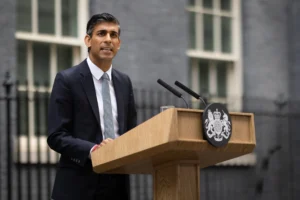On October 30, Luiz Inácio Lula da Silva won the presidential election in Brazil with 50.9% of the votes in his favor, defeating incumbent far-right president Jair Bolsonaro. As such, Lula and his Worker’s Party have overtaken the far-right in the race for the presidency with strong holdings in north-eastern municipalities in Brazil.
Brazilian election: Lula makes stunning comeback, October 31.
Graph from BBC
Lula has made a comeback after serving two consecutive presidential terms from 2003 to 2010. In 2018, Lula was unable to campaign due to his imprisonment for 580 days. He had been found guilty of corruption, as he accepted a bribe from a Brazilian construction firm in exchange for handing out contracts with Brazil’s state oil company. The sentence was annulled by the Supreme Court, enabling Lula to return to the political stage.
It appears as though Lula’s campaign of unity, upholding democratic values, and ensuring social justice in Brazil was convincing to voters. One of the main promises Lula made in his campaign was to bring an end to deforestation. During the previous administration, Bolsonaro had gained the nickname, “Captain Chainsaw” as historic records of deforestation were surpassed this April. Nonetheless, Bolsonaro was able to dominate in the most deforested municipalities. Lula also vowed to protect the more than 900 000 Indigenous people by banning the invasion of Indigenous lands and illegal mining.” In accordance with the values of the Worker’s Party, Lula intends to introduce a more progressive tax system and increase the minimum wage.
Summarizing his campaign on Sunday night, Lula stated: “Starting on January 1, 2023, I will govern for the 215 million Brazilians, not just the ones who voted for me. There are not two Brazils. We are one country, one people, one great nation.”
Overall, it was a tight race for the presidency. Bolsonaro garnered the support of nearly half of the Brazilian population, encapsulating those who had already supported his approach in the 2018 election. With his mantra “God, family, country”, as well as his opposition to the legalization of abortion and drugs, Bolsonaro was again able to attract conservatives, evangelical Christians, and those with strong business-oriented interests.
Bolsonaro has not yet responded to his political defeat. Instead, his son Flávio Bolsonaro tweeted: “Thank you to each one of you who helped us rescue patriotism…We will hold our heads high and we will not give up on our Brazil.” Bolsonaro’s team has repeatedly pointed out that the electronic voting system is fraudulent without using any evidence to back their claim. It is possible that he, like former US President Donald Trump, will not accept defeat and contest the result. His communication minister, Fábio Faria, described the election result as “a grave violation of the electoral system.”
Since the release of the results, Bolsonaro’s followers have been partly blockading highways in Brazil. In response, the military police blocked the Esplanade of the Ministries in Brasília as a precautionary measure.
It is likely that Lula will face opposition from Bolsonaro’s Liberal Party, which gained significant influence in Congress. He will inherit many other challenges left over from Bolsnaro’s term, including repercussions of Covid-19, inflation, and environmental issues, specifically regarding rapid rates of deforestation in the Amazon.
Although Lula won the election, two months still remain until his term begins. Whether the Brazilian democratic institutions are strong enough to withhold these pressures is still up for debate.
Regardless of the outcome, it is unlikely that Bolsonaro will disappear from the political stage. “I suspect that Bolsonaro is going to remain a big figure in far-right politics for many years, he’s got a movement, he’s got a name, he’s got two prominent politician sons in Congress. He’s probably not going anywhere”, Tom Phillips, The Guardian’s Latin America correspondent, stated.
Featured image by: Carl de Souza/AFP via Getty Images







